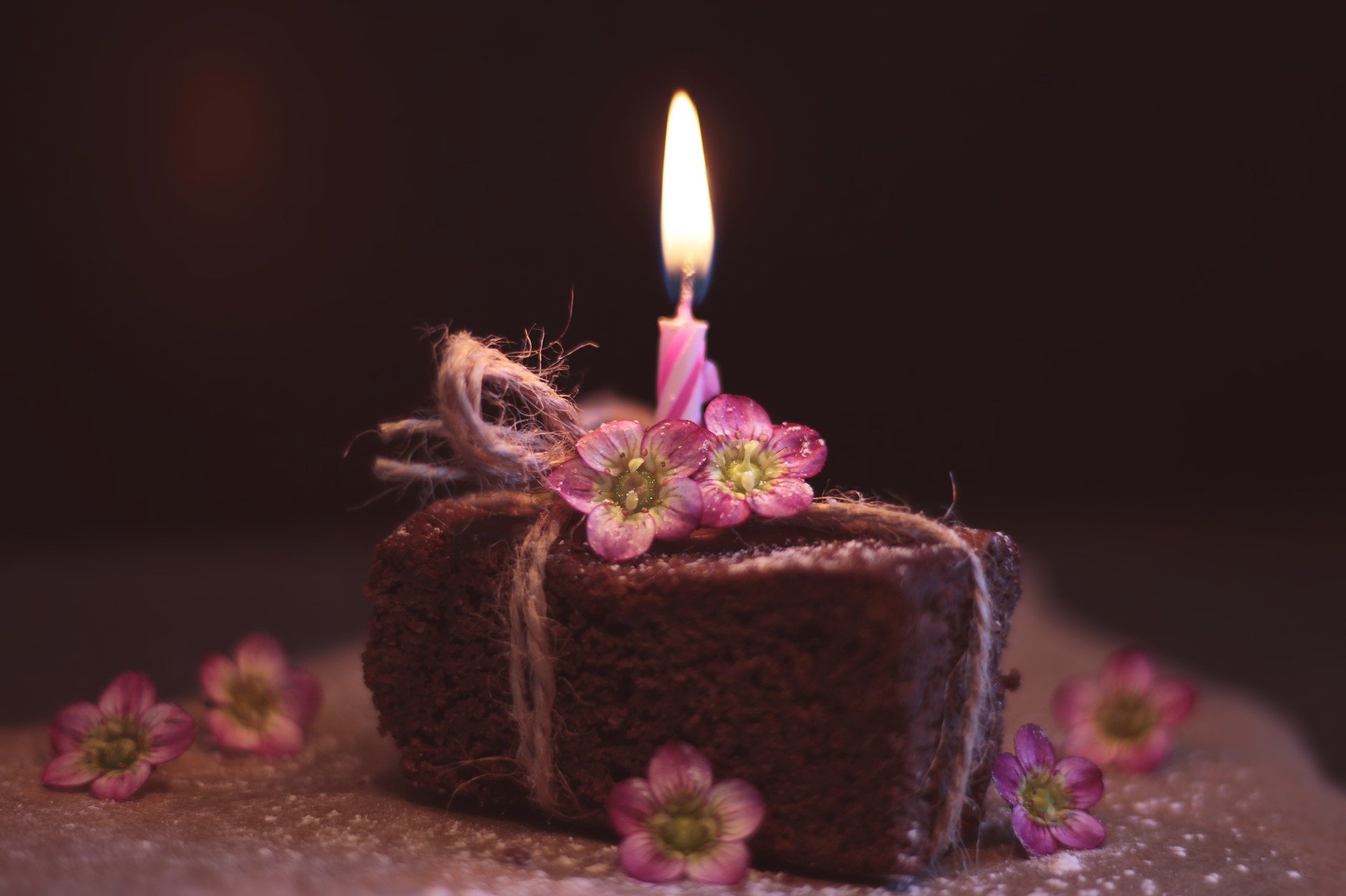I was dreading turning 40 the entire year I was 39. It seems silly now, but after the big birthday, I breathed a sigh of relief that it was over. Is that weird? I probably wasted too much time worrying. I tend to do that from time to time (ok, a lot of the time). I think I was dreading it for so long, but now that it’s come and gone, it feels like a burden has been lifted and I can get back to my regularly scheduled life.
Turning 40 definitely has its upsides. I can now say whatever I want, right?? I tend to analyze every conversation I have right after I have it and wonder if I might possibly have offended someone. (I have a history of sticking my foot in my mouth.) I have realized over time that most people are not analyzing what I said to them in a passing conversation, but are probably too wrapped up in their own lives to notice or get offended. This knowledge is freeing. I don’t know how many hours I spent worrying about what I said, but I don’t do that very much anymore.
I give compliments freely and say hello to strangers. I learned this from a friend many years ago and finally took it to heart. She would compliment someone’s beautiful eyes in a coffee shop – “Why not?” she would remark. “I would love to hear it if someone said it to me.” I can embarrass my kids by disclosing my middle of the night bathroom trips to the receptionist at the doctor and dancing in the aisles of CVS in my mask when I hear Backstreet Boys play over the speakers. I watch the actual news, not just Real Housewives (ok, fine, I still enjoy the occasional Real Housewives). I prefer reading books to Us Weekly. I talk about politics and the housing prices in my neighborhood. I belong to a book club – not one, but three. I am officially an adult.
My synagogue’s book club just read The Choice as their first book, by Edith Eva Eger, a clinical psychologist and a Holocaust survivor. I devoured it all in one sitting.
From the very first chapter, I was riveted. No, sucker punched. I don’t often read Holocaust books. There was this one wall-sized mural in the JCC where I grew up, of this little boy in a ghetto. It terrified me as a kid. I couldn’t walk by it, I ran, especially when I traversed that hallway alone. To this day, it haunts me when I think about it. Eger’s story of survival is heart-wrenching in its detail and it is not for the faint of heart.
During the second half of the book, she focuses on her transformation after the Holocaust. Rebuilding who she was and is today, finding herself after having lost so much.
Because of her background in psychology, she pulls from her extensive experience working with patients to help frame her own experiences. She writes that no matter what we are struggling with, be it something trivial or life-altering, we are all facing a choice. The choice is whether or not to be a victim. We don’t get to choose what happens to us, or the fate that befalls us that is out of our control. But we do get to choose how we react to it, how we live life now.
One piece of the book moved me to tears (actually many parts, but this one in particular). She described how, though she had kept it pent up for many years, she didn’t realize that she felt responsible for her mother’s death in Auschwitz. The self-awareness that came with that realization was jolting. It was not her fault. We can never know how things would have turned out. We can’t go back today and re-choose the choices of yesterday. All we have is the choice with what we do right now, this very moment. Will I fill it with love or will I fill it with fear? Choose love, she writes. Always choose love. And love starts with loving ourselves, forgiving ourselves and accepting ourselves for who we are and every choice we’ve made up till this point.
Her last paragraph brought tears once again:
“And here you are. Here you are! In the sacred present. I can’t heal you – or anyone – but I can celebrate your choice to dismantle the prison in your mind, brick by brick. You can’t change what happened, you can’t change what you did or what was done to you. But you can choose how you live now.”
I had a friend tell me once that she thought the trauma of losing my mother as a child was still affecting how I live on a daily basis, that I was walking on eggshells, afraid of what might happen, that life would crumble at any second. It hit close to home. It’s true.
But living with kid gloves on doesn’t make the very real pain of that loss any less hard. Bad stuff still might happen. The thing to do is to feel it, to grieve for our losses, but realize that if we are still alive, there is a reason, and so we must go on living, and not just breathing, but living. Even a paper cut might sting, but it reminds us that we are still here. Living each day as if it were our last – that is a choice I can get behind.
As Tim Lake says in the final sequence of one my favorite movies, About Time: I just try to live every day as if I’ve deliberately come back to this one day to enjoy it as if it was the full final day of my extraordinary, ordinary life.
